Superfoods are foods that a packed with nutrients. They are highly ‘nutrient-dense’ and can come in many forms – from leafy greens to colorful fruits. Some of the top super-foods are from plant sources like grain, vegetables, and fruits. Seeds are particularly nutrient-dense, containing some of the most health-enhancing nutrients of any foods.
Superfood seeds typically contain dietary fibers, protein, carbohydrates, antioxidants, and healthy fats. They can resolve dietary deficiencies like protein deficiency, iron deficiency, and boost the brain with omega 3 fats, magnesium, and thiamine. They are also full of antioxidant properties that are useful in reducing the risk of diseases like cancer, reducing inflammation, and helping protect against heart disease.
So, what are the top nutrient rich seeds?
1. Chia Seeds
You have probably heard of chia. But here’s what you may not know: It comes from a desert plant. It has black and white seeds. Chia is amazing as a mood and energy booster. It contains omega 3 fatty acids, carbohydrates, proteins, fiber, and calcium, providing the body with rich nutrients to power through the day.
Nutritional value
Chia can increase the level of EPA in the blood – a fatty acid that helps with cardio health. It contains 139 calories and 4 grams of proteins and has around 9 grams of fat and almost 12 grams of carbohydrates. This macronutrient combination makes it great as a breakfast food due to being high in calories and fat (like nuts).
Chia can help in reducing weight and controlling blood pressure due to these healthy compounds. According to research eating one ounce of chia seeds, each day can provide 18 percent of daily calcium, similarly, it can provide potassium and copper which our body needs to function through electrolytes.
Chronic conditions
Chia can help with obesity, diabetes, and lowers overall ‘all-cause’ mortality risk significantly. According to research men under the age of 50 should consume 30.8 grams of fiber per day and women should consume 25.2 grams per day. Chia’s also full of fiber like other plant foods which help contribute to this daily intake.
With its healthy fat and fiber content, chia plays an important role in cardiovascular diseases and reducing cholesterol. Its role in digestion cannot be ignored. Fibers in the seed prevent constipation and aid in digestion, as well as feeding the gut microbiome. Chia seeds are readily available in most health food and large grocery stores. They can be taken in various ways like on cereals, yogurt, oatmeal, and smoothies. Our personal favorite method to eat chia daily is in the pudding – made with almond milk, cinnamon, and cooled overnight in the fridge.
2. Sesame seeds
Amino acids
Sesame has small oil-rich seeds, and they are from the sesamum Indicum plant (the scientific name). They are considered a good source of plant fiber (like chia). Studies show that Sesame may lower high cholesterol and reduces heart risk keeping you fit and healthy. Sesame seeds supply 5 grams of protein per serve but are low in lysine which is an important amino acid that comes from animal products. Sesame seeds are high in methionine and cysteine which are other beneficial amino acids.
Antioxidant power
Sesame seeds are known for their ability to lower blood pressure. It can support healthy bones because it is rich in calcium. They can also reduce inflammation due to antioxidant content. Apart from these nutrients, sesame is also a good source of vitamin B. It may also aid blood cell formation. Sesame seeds are low in carbs while high in protein and healthy fats, all these nutrients control sugar levels and regulating blood sugar. The antioxidants in Sesame can fight oxidative stress which helps in avoiding chronic diseases.
Health boost
Sesame can help support the immune system with key minerals such as zinc, copper, and iron. The antioxidants in sesame play a vital role in arthritis and helping to protect cartilage. Moreover, it is a good source of energy due to high-fat content, great for breakfast and lunch as an addition for an energy hit. Sesame seeds comprise 15% saturated fat and 41% polyunsaturated fat and almost 40% monounsaturated fats. This profile of hugely healthy fats is great for the heart and brain.
According to researchers long-chain fatty acids like those in sesame lower cholesterol levels and reduce heart risk. It also prevents building plaque in your arteries thus maintaining blood pressure. Researchers argue it is effective in controlling systolic pressure. Sesame contains oxalates and phytates that reduce the absorption of plaque adding bad fats in the blood.
3. Flaxseed
Flax is another super seed that can be found in all types of today’s vegan foods and baking due to its healthiness. According to researchers, flax is especially useful for women due to its antioxidant content, helping it give support against breast cancer, prostate cancer, and colon cancer.
Nutritional value
It contains 37 calories, proteins 1.3 grams, carbs 2 grams, fibre 1.9 grams, total fats 3 grams, omega 3 acid 1597 mg, vitamin B1 and B6, phosphorus, and potassium. Flax is rich in alpha-linolenic acid that is often termed as ALA, studies show that ALA helps reduce heard disease risk and stroke over time. Flax is rich in lignans which may reduce blood pressure. It contains high dietary fibre that helps in managing and improving cholesterol levels.
Gut health
Flax is great for both the heart and brain by reducing blood pressure due to its long-chain fatty acid and ALA content. In combination with its plant fiber base, it helps stimulate the digestive system to function effectively and feeds the importance of microbiome gut flora.
Skin benefits
When pressed into an oil, Flaxseed is amazingly effective in moisturizing, decreasing the sensitivity of the skin, and reducing skin roughness. It also regulates skin hydration and smoothness. Flax contains high-quality plant proteins that are rich in amino acids. To best access the powerful nutrients in flax, it is a great idea to crush the flax seeds to allow the gut to dissolve and absorb them. When not crushed down they can simply pass through the system (like chia). If not crushed properly it would not be digested properly and will not be absorbed in the bloodstream. One should look for golden or brown flaxseeds at any grocery store. It is easily available in most main chains and smaller stores.
4. Hemp seeds
Hemp is one of those plant foods that is almost unbelievable in its health benefits and nutrient quality. Firstly, it has proteins containing all essential amino acids (those that can only be obtained via the diet). It contains a huge amount of polyunsaturated and long-chain fatty acids like Gamma-Linoleic acid. In addition, it contains plant fiber, and the use of hemp is known to help reduce appetite, helping in weight management, stabilizing blood sugar, and promoting the health of the gut. Hemp is full of vital minerals and vitamins – it contains vitamin E, magnesium, phosphorous, and potassium. It is also rich in iron, zinc-containing folate, thiamine, riboflavin, and niacin.
CBD value
Hempseed has numerous advantages to a wide array of the body’s organs. Let us begin with a research study – CBD may help in neurological conditions. Extensive research has been done into its application on reducing seizure severity and length, indicating it has neuroprotective properties.
It has also the ability to boost heart health, reducing the issues of the heart. That is because of its Omega 3 and 6 content – these antioxidant chemicals help protect the brain and heart from damage and improve their function and cell recovery.
 Seeds and oil
Seeds and oil
Hemp seed can be pressed into an oil (hemp oil) and mixed into food or can be taken by sprinkling ground seeds on yogurt, adding the seeds to smoothies, baking with hemp seeds, or making hemp milk at home. They are a rich source of various important vitamins which our body needs. Interestingly these seeds are easy to available in markets or one can order online. Anyone serious about maximizing their diet should include a super seed like hemp in their daily intake of nuts and seeds. These seeds are not expensive – they can be purchased from most health food stores but you should crush them before using to enable the gut to absorb them.
Skincare
Hemp also a positive impact on disorders of the skin. Its oil has also many proven skin benefits like improving itchiness and reducing skin irritation like Aloe Vera. Hemp seeds are a good source of plant-based oils and fats which moisturize and soothe the skin like coconut and some nut seeds (e.g. Argan oil).
Due to its Gamma Linoleic Acid (GLA) content, hemp seed can help reduce the symptoms of PMS and Menopause. Over 80% of women suffer from PMS and menopause. Women taking 1 gram of fatty acids per day containing GLA (e.g. from Primrose Oil or hempseed) resulted in a decrease in symptoms of PMS and menopause.
With a combination of plant fibers and antioxidants, hemp is a valuable source nutrient for digestive bacteria and can reduce spikes in blood sugar. Due to its fiber content hemp can help with gut function and feeding the flora that maintains strong and healthy digestive processes.
5. Pumpkin seeds
Pumpkin seeds are renowned as a healthy snack food, is packed with valuable nutrients. They contain healthy fats, magnesium, and zinc therefore which are associated with several health benefits. Magnesium and zinc assist with energy and mood, essential for the functioning of cells as electrolytes (particularly muscles). With fiber, vitamin K, phosphorus, iron, and other trace metals, pumpkin seeds support metabolic function and overall health.
Antioxidants and Carotenoids
It is high in antioxidants and contains carotenoids and vitamin E which are excellent for the eyes and skin. Due to containing antioxidants like many other seeds and plant foods, pumpkin seeds protect your cells from harmful free radicals which are the cause of disease throughout the body. Several studies have shown that seeds are rich in fibers which have countless benefits for us, especially for cholesterol and stomach health. Another (surprising) benefit of pumpkin seeds is improving reproductive health. Because it contains sources of zinc and antioxidants it improves fertility through improved reproductive function.
Pumpkin seeds are also known for being a natural source of tryptophan which is an amino acid that improves sleep. It improves the production of hormones that regulates the sleep cycle (known as melatonin) and having good sleep is critical to maintaining good health. Using pumpkin seeds as your go-to snack is ideal from both a health perspective and to boost your body with the nutrients it needs, all while having a delicious bite.
Conclusion
In summary, we can state that superfood seeds have an enormous amount of energy, health fats, essential amino acids and are greatly beneficial in maintaining good health
They are jam-packed with antioxidants and superfood nutrients like ALA and GLA. It is advisable to eat these seeds daily (particularly chia and hemp), but to crush them before eating to ensure your body absorbs their nutrients. Interestingly these seeds have no side effects on our health and can be taken as much as possible (without over consuming calories). One should take advantage of superfood seeds in various ways – from adding to your daily meals to shakes, coffee, and desserts – make sure you empower your health with the 5 top superfood seeds.
References
Hayes, J., & Benson, G. (2016). What the Latest Evidence Tells Us About Fat and Cardiovascular Health. Diabetes spectrum : a publication of the American Diabetes Association, 29(3), 171–175. https://doi.org/10.2337/diaspect.29.3.171
Pattison, D., Winyard, P. (2008). Dietary antioxidants in inflammatory arthritis: do they have any role in etiology or therapy?. Nat Rev Rheumatol 4, 590–596 . https://doi.org/10.1038/ncprheum0920

Who is the author?
Coming from a small town outside of Melbourne, Steve Jacobs is an avid horticulturalist and business owner of an organic online plant supplement shop. When he’s not gardening, cooking, or walking his dog, Steve spends his time writing and working to share the word on plant-based living and its positive benefits for the mind and body.
Steve became completely plant-based more than 10 years ago and has a heart-held belief that superfood plants, seeds, and nuts are the key ingredients to every person’s inner health and wellbeing (alongside plenty of gardening and yoga). Steve has previously written for local papers such as Lilydale and Yarra Valley Leader as well as the Upper Yarra Mail on gardening and health topics.


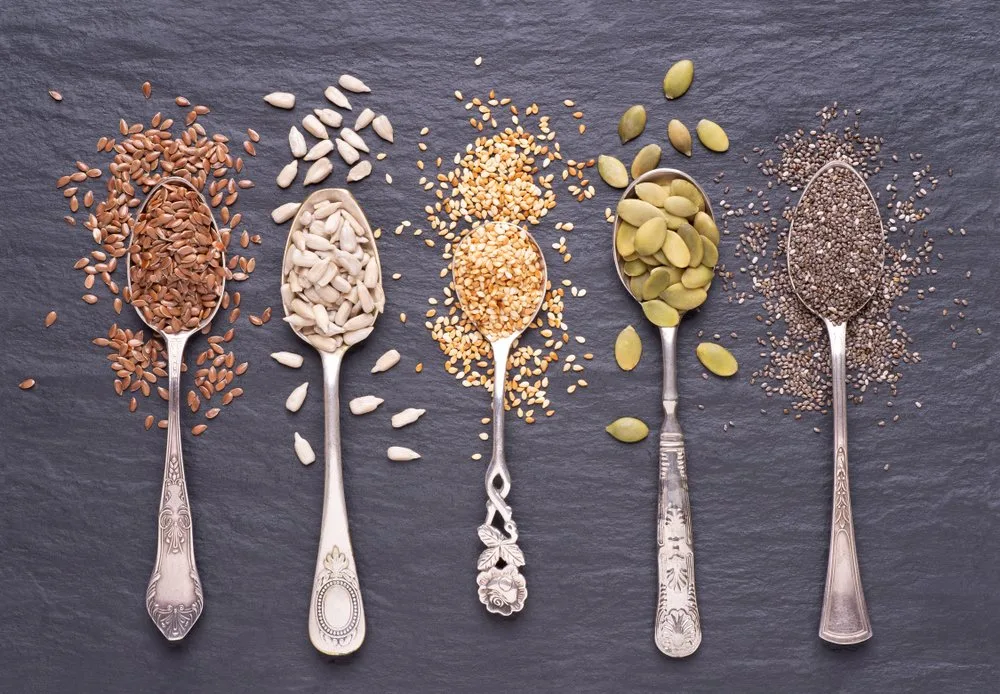
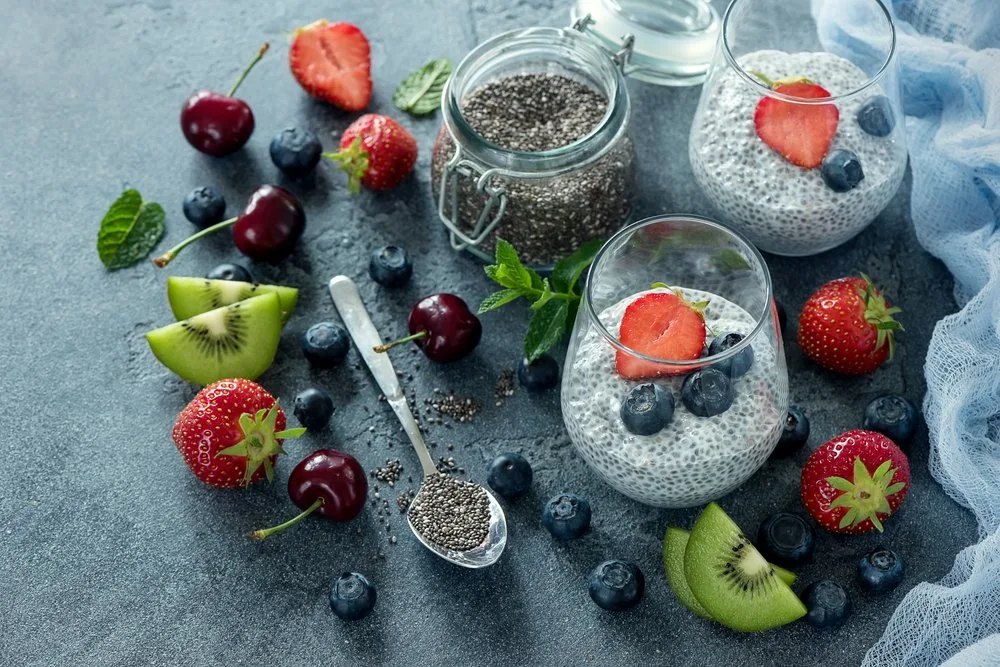
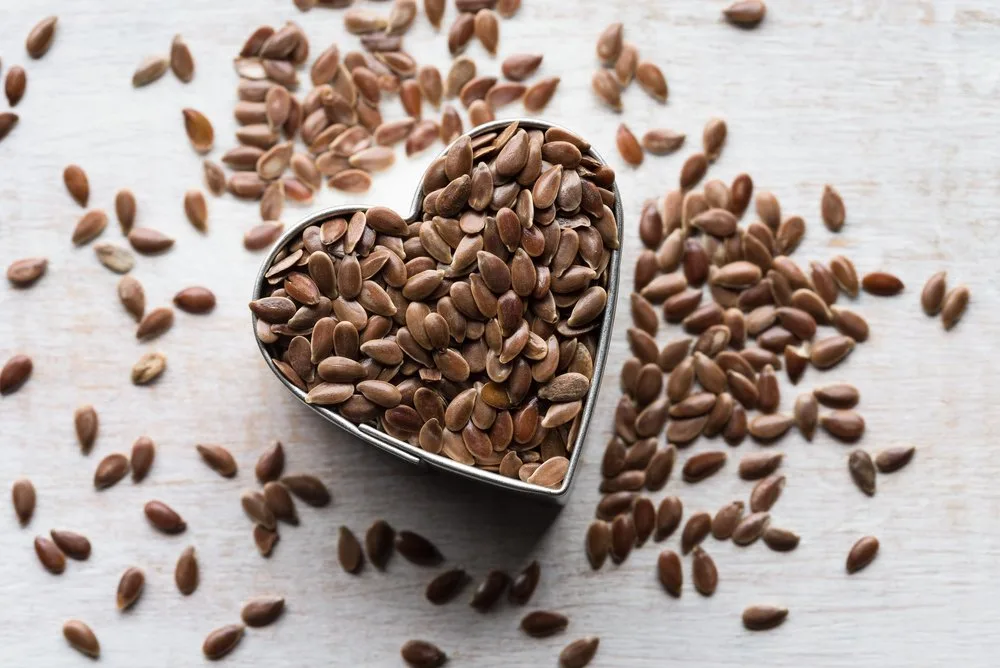
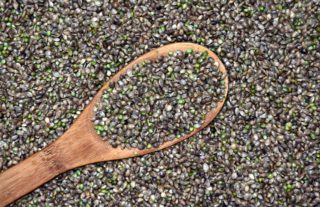 Seeds and oil
Seeds and oil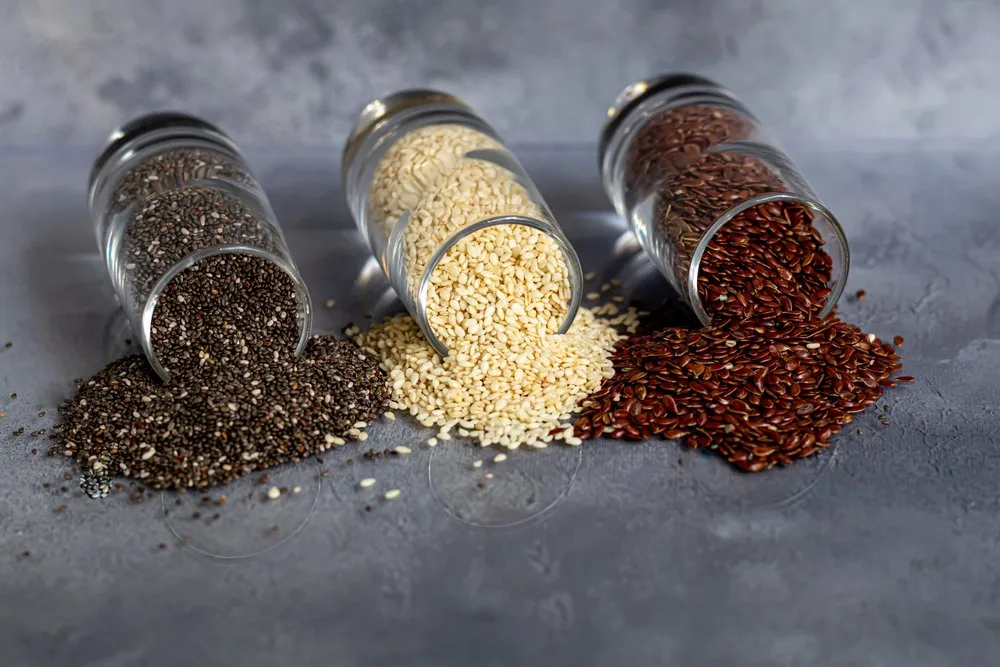
![women [longevity live]](https://longevitylive.com/wp-content/uploads/2020/01/photo-of-women-walking-down-the-street-1116984-100x100.jpg)










